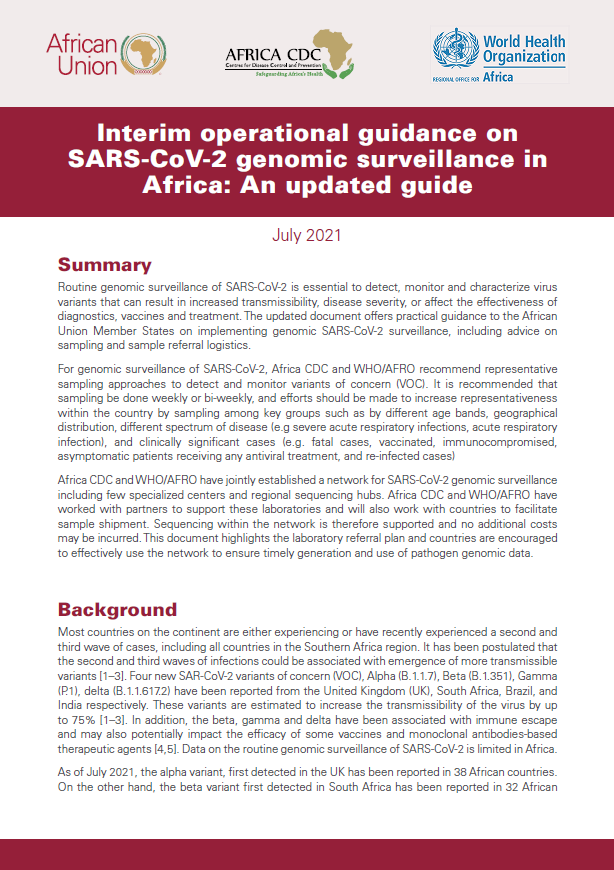Routine genomic surveillance of SARS-CoV-2 is essential to detect, monitor and characterize virus variants that can result in increased transmissibility, disease severity, or affect the effectiveness of diagnostics, vaccines and treatment. The updated document offers practical guidance to the African Union Member States on implementing genomic SARS-CoV-2 surveillance, including advice on sampling and sample referral logistics.
For genomic surveillance of SARS-CoV-2, Africa CDC and WHO/AFRO recommend representative sampling approaches to detect and monitor variants of concern (VOC). It is recommended that sampling be done weekly or bi-weekly, and efforts should be made to increase representativeness within the country by sampling among key groups such as by different age bands, geographical distribution, different spectrum of disease (e.g severe acute respiratory infections, acute respiratory infection), and clinically significant cases (e.g. fatal cases, vaccinated, immunocompromised, asymptomatic patients receiving any antiviral treatment, and re-infected cases).
Africa CDC and WHO/AFRO have jointly established a network for SARS-CoV-2 genomic surveillance including few specialized centers and regional sequencing hubs. Africa CDC and WHO/AFRO have worked with partners to support these laboratories and will also work with countries to facilitate
sample shipment. Sequencing within the network is therefore supported and no additional costs may be incurred. This document highlights the laboratory referral plan and countries are encouraged to effectively use the network to ensure timely generation and use of pathogen genomic data.
